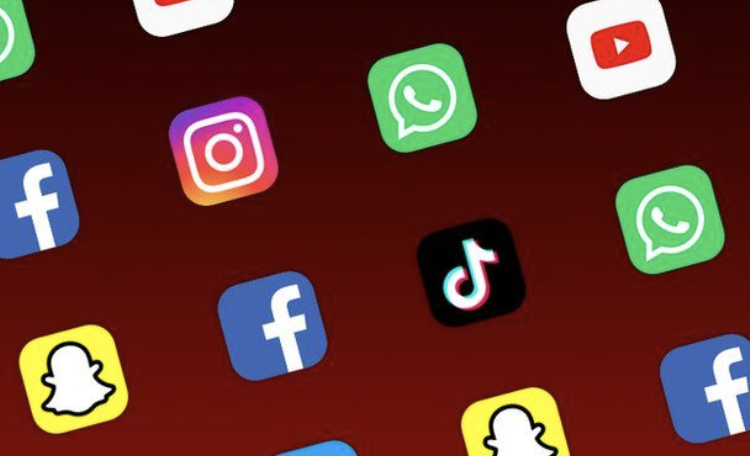Hashtag Activism: A Double Edged Sword
Through its rise, the online world has seen the well-known hashtag appear as a tool for creators and consumers. Not until the new millennium has that symbol associated itself with an ever rising aspect of outreach, opening a door to a plethora of things such as hashtag activism. The hashtag has changed media drastically with its ability to draw attention to broad topics as well as specific events. Hashtags are essential to social media, whether it be bringing focus to daily news updates, awareness on controversial issues, or routinely adding some fun and laughter for its billions of users. Although the intentions for most hashtag designs may be good, especially when considered in media algorithms, there is a degree of overuse and ignorance in those who choose to utilize it. How does a hashtag’s versatility build up to interfere with the long term intended outcome?
Consider equality for this example–the topic causes deep interest for action, or none at all. Without a doubt, equality generates a different picture for each person. Some invest deeply in the subject and passionately seek out change. Most care to some extent, but don’t feel an obligation to truly do something, there are also many who desire to do something but lack resources or knowledge. In this sense, hashtags take the role of introducing a topic of concern and informing those who are not familiar, it can lead someone into finding what they need to potentially help.
Hashtag activism continuously brings awareness to issues. This specific online tactic yields the convenience of efficient communication and variety within the dimensions of each specific issue. In our modern day society, the media has transformed news intake with trending topics. Hashtags have somewhat taken over activism’s job and are often the first method of exposure to people’s topic of interest. Because equality used as a hashtag is an umbrella term that encompasses so many individual smaller regards, each little problem has a connection, and this raises concern for each part of the topic. When one taps on the hashtag for equality, they are introduced to not only human rights, but also diversity and inclusivity. They can explore the aspects of social and political life pertaining to equality. Many benefits arise from the informative and accessible nature of wide reaching hashtags.
However, simply joining the conversation arguably lacks meaning and will not lead to anything being done. Many criticisms exist in the life of online activism. Hashtags can commonly be misleading in that the information under them neglects mentioning the progress the issue has made; just because many people use the hashtag doesn’t necessarily mean equality is being dealt with. The focus is so heavily on awareness and not enough on resourceful progress. Additionally, more often than not, people who are actually interested in equality would explore the hashtag, meaning that it is not reaching those who are left needing to be informed. On the other end of the spectrum, people who constantly see it, even when it isn’t trending, often become ignorant of the hashtag. People realize that often a hashtag is simply strangers sharing their opinions on current problems in society, but is that really providing resources for people to take action? Equality has been a subject of discussion for so long, and it kind of brings people to the realization that there is always going to be room for improvement, and therefore activism always has its role in this area. Hashtag activism contradicts its own purpose in the sense that while it is a good resource for advocates, stagnation easily occurs.
There are also many motives that are involved in activism. In numerous instances, especially with the nature of social media, engagement and support from an audience motivates one to continuously share. In these situations, each post, for instance, is not as meaningful as it should be and does not pertain much to the root of the problem being discussed. Of course, the intention for this information to reach more people is not a bad thing, but do hashtags do enough to cause any true concern for the person sharing? It can be tempting to just stick multiple hashtags into a caption, thinking that you are contributing to making a difference. Often, that doesn’t do enough to garner authentic support from people in order to cause action, which should be the ultimate goal of activism. Also, oftentimes people don’t use hashtags to find resources, rather as a sign of support. Ordinary media users who utilize it to express their concern on occasion reflect some of the flaws of hashtag activism. The struggle for equality becomes difficult and not nearly as impactful when those being influenced don’t feel connected enough to the issue to act.
Equality’s hashtag and those it encircles are simply not enough to cause true long term change. Inevitably, there is not much that can be accomplished through activism besides empowerment and awareness all around. There is even less to be done in an online environment where everything seems to be in a blur as information circles around and is questioned about its reliability. There are only so many people who can achieve large-scale change in society, like government officials and people dedicated to these situations. Through the lens of hashtag activism, spreading the hashtag and others like it can gradually get the attention of these people who are capable of creating some change. In the context of hashtag activism, there needs to be more redirection of attention away from what equality demands towards what it can achieve in the eyes of the same people. The definition of awareness needs to be shifted to include not just knowledge of the issue, but also recognition of why the struggle is meaningful outside of an online environment and in the real world.
Hi I’m Christina and I’m the head of the editing team this year. This is my third year participating in the Bison. In my free time, I like to take...


